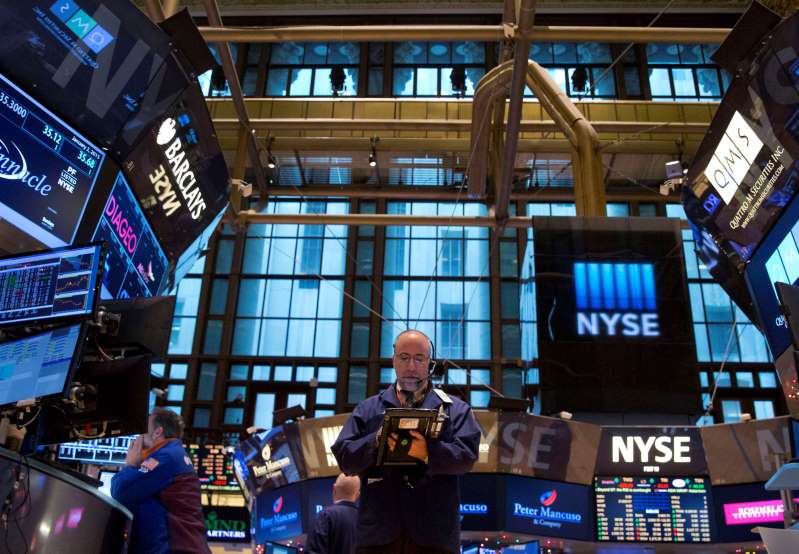By Fred Imbert, CNBC–
Stocks fell Friday as investors digested a drop in semiconductor shares alongside weak data out of China.
The Dow was down 30 points as Intel and Apple lagged. The S&P 500 slipped 0.2% as the tech sector dropped 0.6%. The Nasdaq slid 0.5%.
Chipmakers fell broadly after weak quarterly results from Broadcom. The VanEck Vectors Semiconductor ETF (SMH) fell 2.4%, led by a 6.3% drop on Broadcom. The chipmaker posted weaker-than-expected revenue for the previous quarter and cut its guidance for 2019, citing “broad-based ” demand weakness and the U.S. crackdown on Huawei.
Other semiconductor stocks also fell. Micron Technology, Advanced Micro Technology and Applied Materials all traded down more than 1% lower. Dow member Intel dropped 0.9%.
The “weak 2H outlook could pressure AVGO/peers . . . and semis in general until we get a China/US trade resolution that can reignite customer confidence,” Bank of America analyst Vivek Arya said in a note. “We do assume that any volatile stock market correction could pressure the two sides to come to some kind of resolution.”
Sentiment on Wall Street was also dampened by disappointing industrial data from China. Industrial production in China rose 5% last month on a year-over-year basis, the slowest pace of growth in 17 years. Chinese shares fell overnight following the data release. The Shanghai Composite lost 1% while the Shenzhen A Shares index slid 1.8%.
The major U.S. stock indexes posted solid gains in the previous session, adding to this month’s sharp rally. The Dow, S&P 500 and Nasdaq were all up more than 5% entering Friday’s session.
U.S. retail sales rose 0.5% in May, according to the Commerce Department. That was below the 0.6% gain expected by economists polled by Refinitiv. However, April retail sales were revised higher. May sales were also up 0.5% when excluding auto, gas building materials and food.
“We continue to expect that a sharper slowdown in economic growth over the coming months will convince the Fed to cut interest rates, but the retail sales data reinforce our view that officials are likely to wait until the September FOMC meeting before pulling the trigger,” said Andrew Hunter, senior U.S. economist at Capital Economics.
CNBC’s Ryan Browne contributed to this report.


Leave A Comment
You must be logged in to post a comment.